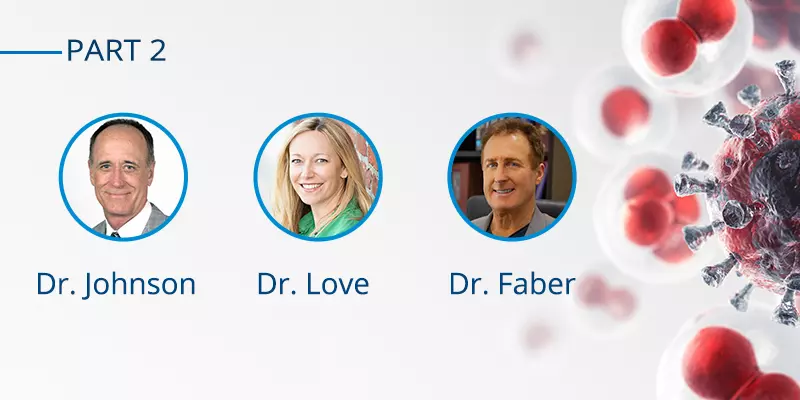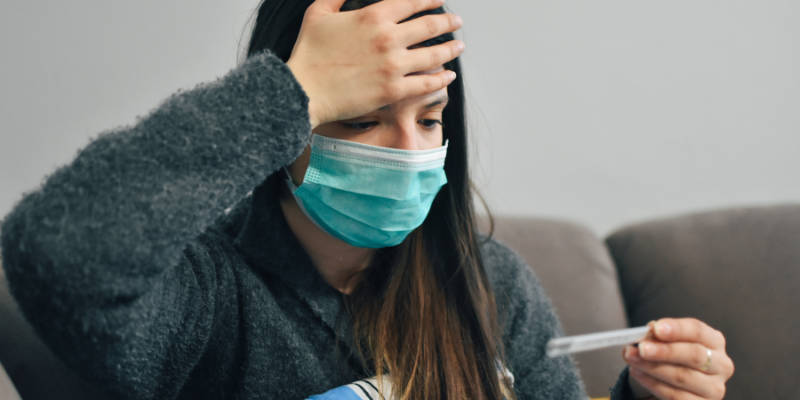
When 3 psychiatrists from Amen Clinics hosted a webinar to answer people’s questions about the coronavirus pandemic, they received such a flood of queries they couldn’t get to them all during the allotted time.
Dr. Robert Johnson, Dr. Jennifer Love, and Dr. Jay Faber graciously agreed to respond to some of the most common additional questions they received. Here’s what they had to say.
“Would a couple of hyperbaric treatments a week be preventative for COVID 19?”
Dr. Johnson: There was a study out of Wuhan, China, involving the use of hyperbaric oxygen therapy (HBOT) in the treatment of severe COVID-19 cases. It involved 5 COVID-19 patients, 2 of whom were critically ill and 3 of whom were suffering from “severe” illness. They were treated with HBOT at the Department of Hyperbaric Oxygen in Wuhan Yangtze River Shipping General Hospital.
In that report, hyperbaric oxygen was added to the current comprehensive treatments being performed at the hospital for COVID-19 affected patients, with a dose of 90-120 minutes at treatment pressures of 1.4 to 1.6 ATA. The results were very encouraging; 5 patients received significant therapeutic benefits, including rapid relief of symptoms after the first session. The rationale for the improvement was the ability of hyperbaric therapy to quickly reverse progressive hypoxemia (low blood oxygen levels).
However, there is no data regarding HBOT’s ability to prevent COVID-19 infection.
“How do we shift focus to our values and stop obsessing with goals? Especially when our goals seem further away due to the economic and social shifts we are seeing?”
Dr. Johnson: A good model for this comes from the domain of sports. As an athlete, all you can control is your process. In fact, most athletic breakthroughs occur when you relinquish concern about the result and focus on your preparation and execution. The same principle holds as it relates to our obsession with goals in everyday life; we as individuals don’t have control over the macroeconomic effects of the coronavirus, but we can focus on clarifying the following:
- “What have I learned is most important to me going forward in this next chapter of my life (relationally, physically, spiritually, vocationally)?”
- “What are the changes I need to make in order to live those values?”
So, it starts with clarifying your core values at this point in time, then developing, implementing, and sustaining the habits, practices, and mindset that will serve those core values/priorities. The key is to slow down and find joy in each step of the process—really enjoying your body’s ability to move when exercising, being present to your breath during mindfulness meditations, mining a feeling of gratitude for each small pleasure in your life, and enjoying the fruit that grows from being as authentic and vulnerable as possible in your relationships.
“How can we help our friends and family not falling to depression at this time when some are isolated alone?”
Dr. Love: FaceTime, send flowers or small tokens—books, a candle, a hand-written letter. Even a picture drawn by a 50-year-old of something ridiculous like a dinosaur walking through a garden with a robot would make anyone laugh (maybe at you, but whatever). Write a series of encouraging notes, drawings, articles of interest, crosswords from the newspaper; put them into separate envelopes with dates to open, and send them together in a large envelope. Find out whether there is a certain time of day when they feel the most lonely, sad, or anxious, and contact them half an hour before. Send them a TikTok. Video record the family singing a favorite song or a silly song. Send things randomly, frequently, and follow up with regular FaceTime calls or phone calls.
“I have an adolescent who is experiencing some paranoia. We are mainly staying home during the pandemic and not allowing him to visit his friends during this time. What are some recommendations for him?”
Dr. Faber: Loneliness and not seeing friends has been a big issue during the pandemic. Here are my suggestions. I would highly encourage using social media like FaceTime, Skype, or Zoom to spend time with friends. With that recommendation, your adolescent may be spending more time on social media than recommended before the COVID-19 restrictions. If social time is being used constructively, parents might think of giving their children more time to be on social media to talk with friends.
“My 26-year-old daughter is out there working with kids with autism. how can I help her cope with the added stress of being exposed to Covid-19?”
Dr. Faber: This is a great question. In order to cope with the stress, I would work closely with your doctor to make sure you’re doing everything possible to promote healthy immune functioning. Talk to your doctor about the proper use of multivitamins, vitamin C, vitamin D, and zinc, as well as other agents. To decrease stress, simple relaxation exercises, such as deep breathing, meditation, and yoga can help keep our body in a protective state to stay calm and promote healthy immune functioning.
If you missed the webinar, click here for the video and the first round of questions answered.
Depression, anxiety, panic attacks, and other mental health issues can’t wait. During these uncertain times, your mental well-being is more important than ever, and waiting to get treatment until the pandemic is over is likely to make your symptoms worsen over time.
At Amen Clinics, we’re here for you. We offer mental telehealth, remote clinical evaluations, and video therapy for adults, children, and couples, as well as in-clinic brain scanning to help our patients. Find out more by speaking to a specialist today at 888-288-9834. If all our specialists are busy helping others, you can also schedule a time to talk.





Im requesting information to cope with depression. My name is Debbie, mom
I have a son name Daniel in prison, since 19 yrs old. He is now turning 32 yrs old. Diagnose ADHD since K, polly substance abuse, has suffered many things. We both suffer silent prisons of depression, seldom discussed. What has helped me is forgiveness & releasing them. My son would rather not acknowledge people who has deeply hurt him. Not to mention a few is in heaven now
We are both tend to be positive thinkers, choosing to see the best. Both having father issues, e.g. emotionally unavailable, physically & mentally abusive at times. I was raised in foster homes. Very successful in work. Thank you for your attention & response
Comment by Debbie Alexander — May 21, 2020 @ 1:55 AM